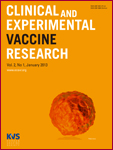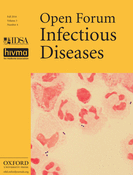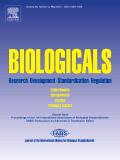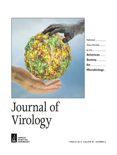
Vaccine
Scope & Guideline
Pioneering the future of vaccination and public health.
Introduction
Aims and Scopes
- Vaccine Development and Innovation:
Research on novel vaccine platforms, including mRNA, viral vector, and protein-based vaccines, aimed at improving immunogenicity and safety. - Epidemiology and Public Health Impact:
Studies assessing the impact of vaccination programs on disease prevalence, community health outcomes, and economic evaluations of vaccination strategies. - Vaccine Safety and Adverse Events:
Systematic reviews and observational studies investigating the safety profiles of vaccines, including monitoring for adverse events following immunization (AEFIs). - Vaccine Acceptance and Hesitancy:
Research exploring factors influencing public perceptions, attitudes, and behaviors towards vaccination, including interventions to enhance vaccine uptake. - Global Immunization Strategies:
Analysis of vaccination coverage, policies, and challenges faced in different regions, particularly in low- and middle-income countries. - Maternal and Pediatric Vaccination:
Studies focusing on vaccination during pregnancy and its effects on maternal and infant health, as well as childhood vaccination uptake. - Special Populations and Immunocompromised Individuals:
Investigations into vaccine responses in specific populations, including those with underlying health conditions or immunocompromising conditions.
Trending and Emerging
- COVID-19 Vaccination Research:
A significant increase in studies related to the development, effectiveness, and safety of COVID-19 vaccines, including booster doses and variants. - Integration of Digital Health Tools:
Growing research on the use of digital platforms and tools to improve vaccination uptake, monitor adverse events, and enhance communication strategies. - Multi-Dose and Heterologous Vaccination Strategies:
Emerging interest in the effectiveness of mixed-dose vaccination regimens and their implications for broader immunity. - Vaccine Impact on Non-Communicable Diseases:
Exploration of vaccine impacts beyond infectious diseases, particularly concerning non-communicable diseases and associated health outcomes. - Community Engagement in Vaccination Programs:
Increased emphasis on community-based approaches to vaccination, addressing social determinants, and enhancing local trust in vaccination efforts. - Innovative Vaccine Delivery Systems:
Research into novel routes and methods of vaccine administration, such as intranasal or microneedle delivery systems, to improve accessibility and adherence. - Environmental and Social Determinants of Vaccination:
Emerging studies focusing on how environmental factors and social determinants impact vaccination rates and public health outcomes.
Declining or Waning
- Vaccine Hesitancy in General Populations:
While vaccine hesitancy remains a critical issue, the focus on broad public hesitancy is waning, with more targeted studies addressing specific demographics or communities. - Traditional Vaccine Platforms:
Research on conventional vaccine technologies, such as inactivated or live-attenuated vaccines, has become less prevalent as newer platforms gain popularity. - Longitudinal Studies on Vaccine Effectiveness:
Long-term effectiveness studies are being overshadowed by immediate post-vaccination efficacy reports, particularly in the context of COVID-19. - Historical Vaccine Efficacy Studies:
Research focusing on historical vaccine efficacy is less common, as current research prioritizes emerging vaccine technologies and real-time efficacy evaluations.
Similar Journals

Infectious Diseases
Transforming Discoveries into Solutions for Global HealthInfectious Diseases, published by TAYLOR & FRANCIS LTD, is a leading academic journal dedicated to advancing research in the field of infectious diseases and microbiology. With an impressive impact factor and categorized in Q1 in multiple areas including Immunology and Microbiology, this journal serves as a critical platform for researchers, practitioners, and students to disseminate their findings and stay abreast of current advancements. The journal is recognized for its rigorous peer-review process and aims to foster innovation and collaboration across disciplines from 2015 to 2024. It boasts a robust Scopus ranking, positioning it favorably among the top-tier of journals in the relevant fields, making it an essential resource for anyone involved in infectious disease research. Access options are available, ensuring that the latest research is accessible to a global audience, thus emphasizing the journal's commitment to promoting knowledge and understanding in the ever-evolving landscape of infectious diseases.

Clinical and Experimental Vaccine Research
Connecting researchers to revolutionize vaccination efforts.Clinical and Experimental Vaccine Research, an esteemed journal published by the Korean Vaccine Society, serves as a vital platform for disseminating groundbreaking research in the fields of Immunology, Infectious Diseases, and Public Health. Since its inception in 2012, this open-access journal has been committed to advancing knowledge and fostering collaboration among professionals dedicated to vaccine development and evaluation. With an impactful presence and a Q3 ranking in several categories on the Scopus index, it reflects a robust commitment to quality, evidenced by its placement within the 41st to 59th percentiles across multiple disciplines related to medicine and health. Situated in Seoul, South Korea, at the Department of Pediatrics, Yonsei University Severance Children's Hospital, the journal not only provides a crucial resource for researchers and practitioners but also enhances the global discourse on vaccination strategies and public health interventions. By contributing to the ongoing dialogue in vaccine research, this journal plays an essential role in shaping future health policies and practices.

INDIAN PEDIATRICS
Fostering collaboration for improved child health outcomes.INDIAN PEDIATRICS is a renowned peer-reviewed journal dedicated to advancing the field of pediatrics, published by Springer India. Since its inception in 1964, the journal has been instrumental in disseminating high-quality research and clinical insights, addressing a wide array of topics including pediatric health, perinatology, and child development. With an esteemed categorization in the Q2 quartile in Pediatrics, Perinatology, and Child Health and a respectable Scopus ranking (Rank #123/330), INDIAN PEDIATRICS continues to play a vital role in shaping pediatric healthcare practices in India and globally. The journal aims to provide a platform for researchers, clinicians, and practitioners to share innovative findings, impacting policy and clinical practice. As an essential resource for professionals and students, it not only enhances knowledge but also encourages discussions in the ever-evolving realm of pediatric medicine. Engage with the latest research and contribute to the growing body of evidence aimed at improving child health outcomes.

Klimik Journal
Elevating Standards in Infectious Disease Research.Klimik Journal is a pivotal publication in the fields of Infectious Diseases and Medical Microbiology, serving as a platform for researchers, clinicians, and academics to disseminate groundbreaking findings and improve health outcomes. Established in 2010 and published by DOC DESIGN INFORMATICS CO LTD, this journal is dedicated to advancing knowledge and fostering discussions around critical issues in infectious diseases and microbial research. With an ISSN of 1301-143X and an E-ISSN of 1309-1484, Klimik Journal strives to maintain high academic standards despite currently ranking in the fourth quartile in both categories according to Scopus metrics, which highlights the need for continued contributions to the field. Operating from Turkey, the journal is committed to supporting open access options, thereby ensuring wide dissemination of research findings. As it continues to bridge the gap between theory and practice, Klimik Journal is poised to become an essential resource for those looking to stay at the forefront of infectious disease research and microbiological advancements.

Emerging Microbes & Infections
Fostering collaboration to tackle microbial threats.Emerging Microbes & Infections is a premier open access journal, published by Taylor & Francis Ltd since 2012, dedicated to advancing the understanding of microbial infections and their implications in human health. With an impressive Q1 ranking across multiple categories—including Drug Discovery, Epidemiology, Immunology, and Infectious Diseases—this journal is at the forefront of research in the microbiological sciences. Covering a diverse range of topics, it serves as a vital resource for researchers, healthcare professionals, and students alike. The journal's commitment to open access ensures worldwide dissemination of cutting-edge findings, fostering collaboration and innovation in tackling challenges posed by emerging infections. As part of the thriving academic community in the United Kingdom, Emerging Microbes & Infections plays a crucial role in shaping the future of infectious disease research and public health.

Open Forum Infectious Diseases
Transforming insights into impactful practices.Open Forum Infectious Diseases (ISSN: 2328-8957; E-ISSN: 2328-8957) is a leading open-access journal published by Oxford University Press, dedicated to advancing the field of infectious diseases. Since its inception in 2014, the journal has provided a platform for researchers to disseminate impactful findings in a rapidly evolving domain, achieving a remarkable Q1 ranking in both the Infectious Diseases and Oncology categories as of 2023. The journal encourages rigorous and innovative research, contributing significantly to global health discussions and informing best practices in clinical settings. As an open-access journal, it ensures that its content is accessible to a wide audience, fostering collaboration and knowledge sharing among researchers, professionals, and students alike. Positioned in the heart of the United States, Open Forum Infectious Diseases serves as a critical resource for the academic community, and its continued commitment to quality and relevance secures its status as an essential publication in the field.

Eurosurveillance
Exploring the frontiers of epidemiology and public health.Eurosurveillance is a prestigious journal dedicated to the field of epidemiology, public health, and infectious diseases, published by the European Centre for Disease Prevention and Control since 1996. With an impressive Q1 ranking across various categories, including Epidemiology and Public Health, it consistently stands at the forefront of research dissemination, making it an invaluable resource for researchers, professionals, and students alike. The journal boasts an outstanding reputation, as evidenced by its Scopus rankings, where it ranks in the top 1% to 3% in multiple relevant categories. As an Open Access publication, Eurosurveillance ensures that vital findings are freely accessible to a global audience, fostering collaboration and innovation in the fight against infectious diseases. With a dedicated reach from 2001 to 2024, the journal addresses contemporary challenges in public health and virology, reinforcing its significance in shaping policies and research initiatives across the world.

BIOLOGICALS
Unveiling the latest breakthroughs in life sciences.BIOLOGICALS, published by Academic Press Ltd - Elsevier Science Ltd, is a prestigious journal dedicated to advancing the fields of applied microbiology, biotechnology, immunology, and pharmacology. With an ISSN of 1045-1056 and E-ISSN of 1095-8320, this journal has established itself as a vital resource for researchers and practitioners, offering rigorous peer-reviewed content that spans converging disciplines from 1990 to 2024. With a commendable presence in the field, it ranks in the Q3 category across multiple domains, including applied microbiology and biotechnology, highlighting its contribution to critical advancements and knowledge dissemination. The journal's rankings reflect its relevance, with notable placements in Scopus Ranks, ensuring it remains an important platform for innovative research and discussion. Although it does not currently offer Open Access, the journal’s comprehensive review process guarantees the quality of published work, making it essential reading for professionals, academics, and students seeking to stay informed about the latest developments in biology and life sciences.

JOURNAL OF MEDICAL VIROLOGY
Leading the Charge: Shaping the Future of Virology Research.JOURNAL OF MEDICAL VIROLOGY is a prestigious academic publication dedicated to advancing the field of virology and infectious diseases. Published by WILEY, this journal has established itself as a cornerstone within the scientific community since its inception in 1977, and it will continue to provide cutting-edge research until 2024. With an impressive impact factor that places it in the Q1 quartile for both Infectious Diseases and Virology, the journal ranks 14 out of 344 in Medicine - Infectious Diseases and 6 out of 80 in Immunology and Microbiology - Virology according to Scopus metrics. Its focus encompasses a broad spectrum of topics, including viral pathogenesis, diagnostics, treatment strategies, and epidemiology, making it an essential resource for researchers, clinicians, and students alike. Although not an open-access journal, it provides valuable insights and accessible content for subscribers and libraries. The ongoing commitment to high-quality peer-reviewed articles makes JOURNAL OF MEDICAL VIROLOGY a vital platform for disseminating knowledge and fostering innovation in virology and related fields.

Journal of Virology
Innovating Solutions for Viral ChallengesJournal of Virology is a premier scholarly journal dedicated to advancing the field of virology, focusing on the molecular mechanisms of virus-host interactions, viral pathogenesis, and the latest therapeutic and vaccine developments. Published by the American Society for Microbiology, this esteemed journal has been a cornerstone for researchers since its inception in 1967, providing a platform for high-quality, peer-reviewed research. With a commendable impact factor indicative of its relevance and influence, the journal is categorized in the top quartile (Q1) for Virology, Microbiology, and Insect Science, reflecting its significance in these fields. Researchers can access a wealth of studies and findings that shape our understanding of viruses and their interactions with hosts, highlighting its role in both basic and applied sciences. Positioned in the United States, the Journal of Virology serves a global audience, ensuring that cutting-edge discoveries reach professionals, students, and academics alike. Join the conversation as we explore the complexities of virology and its implications for human health and disease.